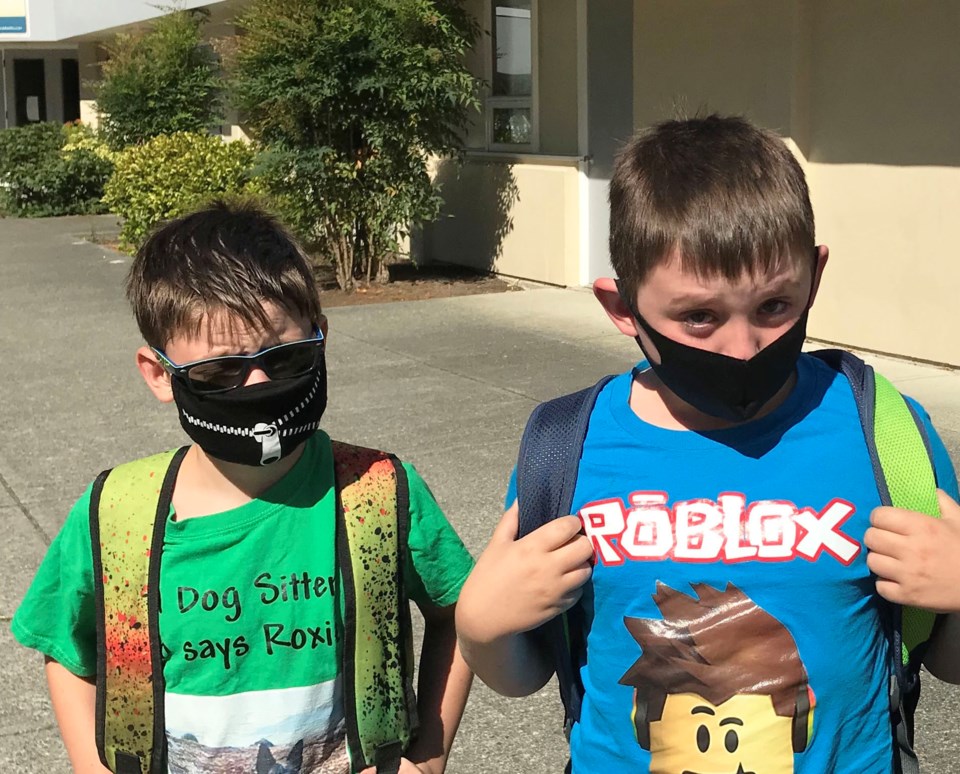While the expansion of the mask mandate to schools is welcome, it does not go far enough to allay fears about contracting COVID-19.
That’s what the Delta Teachers’ Association is saying regarding Thursday's announcement by the provincial government that non-medical masks are now required for all staff in all K-12 schools, as well as all students in secondary schools in all indoor areas, including when they are in their learning groups. The only exceptions are when they are sitting or standing at their seat or workstation in a classroom, or when they are eating or drinking or if there is a barrier in place.
Elementary school students are still not required to wear masks and it remains a family decision.
However, the guidelines have changed, as previously the guidelines stated that masks were “not recommended” for elementary school students.
A statement last weekend by the DTA posed several questions about the policy shift on masks, noting they may not go far enough.
“Example: students in middle and secondary don’t have to wear masks when sitting or standing at their seat or workstation in a classroom or learning spaces? As students are often at their seats or workstations, this means that there is a lot of time students are not required—according to the new guidelines—to wear their masks. What will mask-wearing behaviours actually look like with students taking masks off and on with so many exceptions? While the expanded mask-wearing initially sounded promising, the exceptions to mask-wearing may be greater than the rule.”
The statement adds, “Another question: Why so long for the expanded mandate? B.C.’s educators have long been asking that students at secondary wear masks whether in or out of their ‘learning cohorts’.
A local concern: How will changes affecting middle schools apply in Delta? Delta does not currently have middle schools - middle schools typically cover grades 6 through 8 - as it has elementary schools (grades K to 7) and secondary schools (grades 8 to 12). The DTA concern is that increased measures for grades 6 and 7 will not be applied in Delta and, therefore, that layer of protection will not be available to staff and students at elementary.”
The DTA also notes that there continues to be concerns about the inability to physically distance within classrooms, which is why classroom densities need to be decreased.
The DTA is urging parents to talk with their children about wearing masks at school.
“While teachers cannot insist that their students at elementary wear masks, they can only encourage mask-wearing behaviours. Delta’s educators care about their students, their colleagues and their communities and view the wearing of masks as an indicator of caring and respect for each other’s health and well-being.”
A notice to parents from Delta school district superintendent Doug Sheppard explained some of the new rule changes, including, among other things, high-intensity physical activities now needing to maximize physical distancing, reduce physical contact and to be held outdoors as much as possible.
Students playing instruments must be spaced at least two metres apart and masks must worn when singing.
Sheppard added, “Experience to date has shown that schools continue to be low-risk sites for COVID-19 transmission. Most school exposures in the fall did not result in transmission within the school, however, some school exposures did result in additional cases. The Ministry has recommended that all schools review their health and safety plans, with a focus on areas where measures may be absent or inconsistently implemented.”



